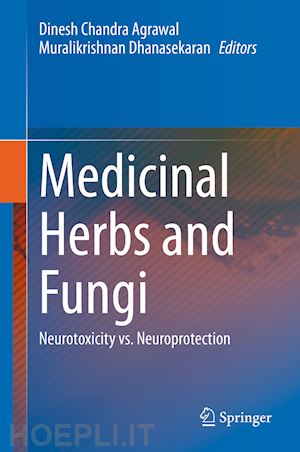Dr. Dinesh Agrawal, Ph.D., is working as a professor in the Department of Applied Chemistry, Chaoyang University of Technology (CYUT), Taiwan. Before joining the CYUT in 2013, he had served in the CSIR-National Chemical Laboratory, Pune, India, for 31 years. Professor Agrawal has more than 38 years of research experience in biotechnology of diverse species, including medicinal plants and fungi, and has 180+ publications, including five books (3 by Springer). Professor Agrawal has been conferred several prestigious awards and fellowships, including the Alexander von Humboldt Fellowship (Germany), DBT Overseas Associateship (USA), British Council Scholar (UK), European Research Fellow (UK), and INSA Visiting Scientist (India). Professor Agrawal has served as a member of the editorial board of Medicinal and Aromatic Plant Abstracts, NISCAIR, Govt. of India. Presently, he is on the editorial board of the International Journal of Applied Science and Engineering (Scopus) and serving asAssociate Editor-in-Chief of the journal.
Dr. Muralikrishnan Dhanasekaran, Ph.D., is a professor in the Department of Drug Discovery and Development at Harrison School of Pharmacy, Auburn University. Before joining Auburn University in 2005, he worked as a post-doctoral fellow at the University of North Dakota, Grand Forks, ND, and Scott & White Clinic / Texas A & M, Temple, TX. His current research involves elucidating the neuroprotective and neurotoxic effects of botanicals and synthetic compounds, discovery, and development of drugs/compounds targeting Alzheimer’s and Parkinson’s diseases. Professor Dhanasekaran completed the New Investigator Research Grant from Alzheimer’s Association, several grants from the Auburn University grants, and several other research projects from a Pharmaceutical Company. He has published more than 200 scientific abstracts, 85 peer-reviewed publications, a book, and several book chapters.











